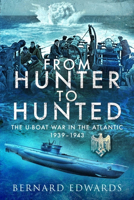Author: Stephen Wynn
Published: August 2020
As with Dunkirk, their actions turned a strategic defeat into a propaganda victory for the Allies, but the need to boost public morale by mythologising the rescue effort served to obscure the tragedy of lives lost, including those of many merchant mariners. Stephen Wynn’s new book focuses on a specific incident in that darkest hour: the sinking of the RMS Lancastria by German aircraft and the coverup of the incident ordered by Winston Churchill – a cover-up that persists to this day.
Wynn first gives a history of the Lancastria – which was a British ocean liner requisitioned at short notice as a troopship – and recounts its bombing and destruction while it was waiting for a destroyer escort out of the port of St Nazaire. The author’s clear prose is augmented with news reporting and eyewitness accounts from soldiers and seafarers, including four extensive personal stories.
Perhaps drawing on his own experience in the police force, Wynn also investigates Churchill’s cover-up. It is estimated that there were between 3,000 and 5,800 fatalities when the Lancastria was sunk – the largest single-ship loss of life in British maritime history. Perhaps because of the likely damage to British morale if this figure were widely known, the prime minister issued a D Notice to prevent the press from reporting on the loss of the Lancastria, and the survivors were told not to speak about what happened.
Official documents will continue to be kept secret until 2040, fuelling suspicions that something remains concealed, and although Wynn’s research allows him to give a very strong account of the disaster there are still gaps in the record – so his story must remain incomplete for another two decades. That said, the book delivers facts, horror and above all the understated heroism of the British merchant mariners with equal aplomb.






























